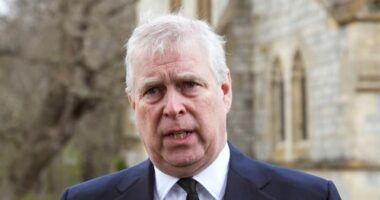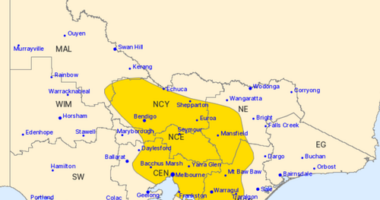Share this @internewscast.com
“Our large battery is a product of Australian design and craftsmanship. It has the capability to store excess solar energy produced during the day and use it overnight, enabling us to power all our morning production,” explained Stuart.
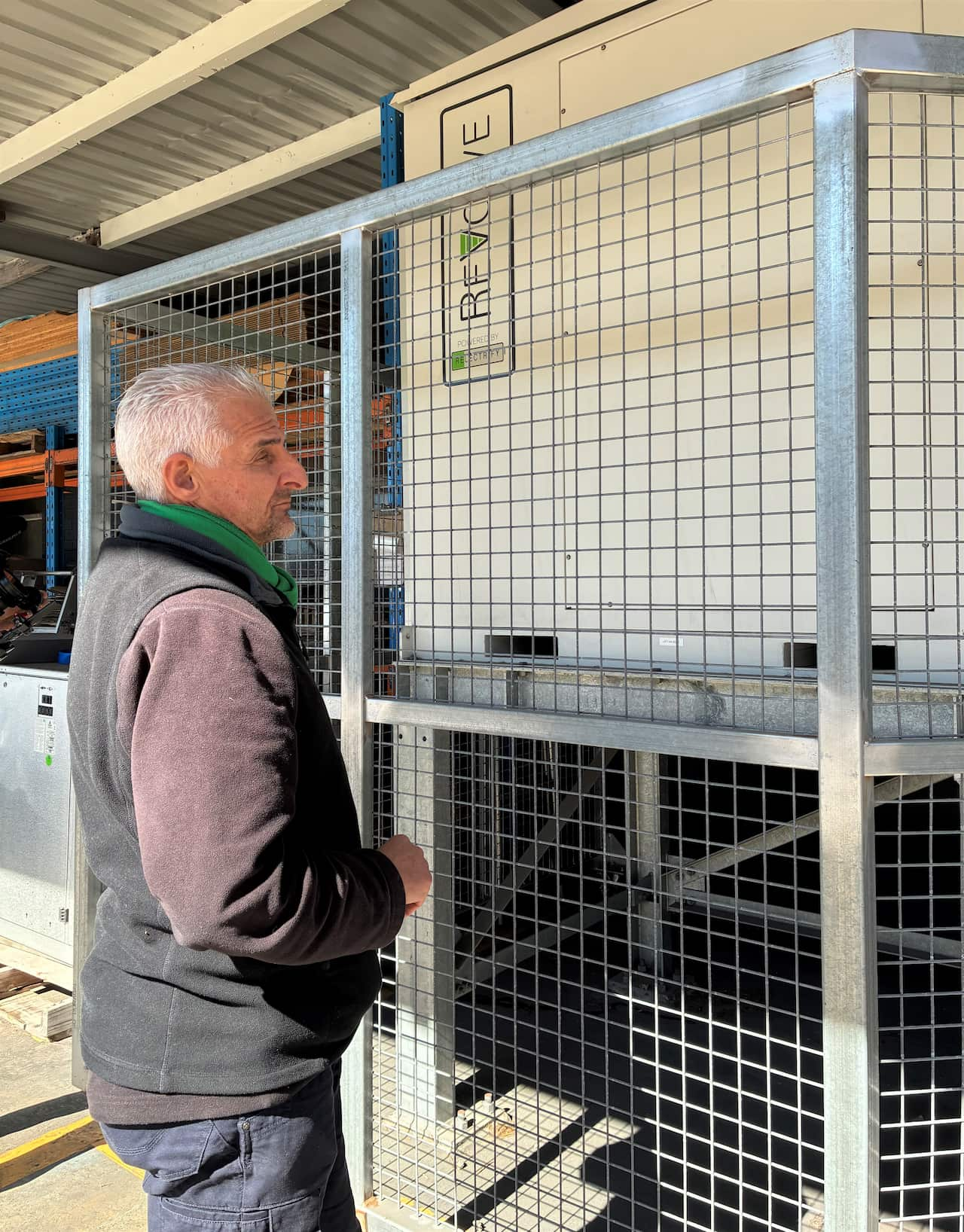
David Stuart has revolutionized his business operations by shifting almost entirely to renewable energy sources.
This transition has significantly reduced Colormaker Industries’ electricity expenses, saving the paint company thousands of dollars each year and providing a competitive advantage.
The increase in energy costs has heightened living expenses and intensified calls for greater energy self-sufficiency through renewable energy sources.
“If someone had told me six years ago that we would be at this point now, I would never have believed it,” Stuart remarked.
A recent report revealed that 28 percent of the 1,100 small business owners surveyed across the nation had considered shutting down in the past year, and 30 percent feared closure within the next 12 months.
Cutting costs with solar and efficiency
“So, we bought a new compressor and over 12 months that led to a 23 per cent drop in our energy usage.”
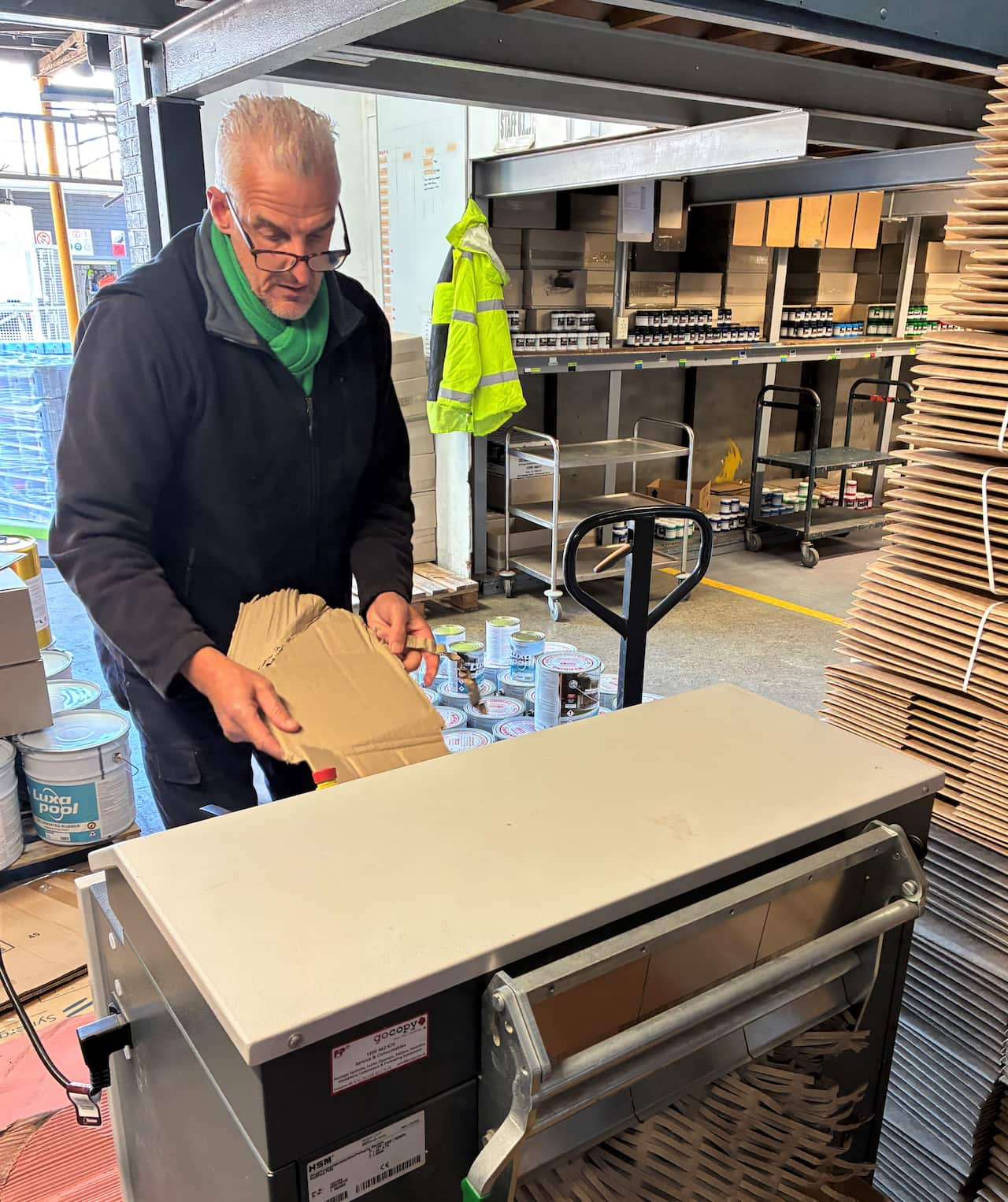
David Stuart has implemented sustainable changes to his paint business, including the installation of a mega-shredder. Source: SBS / Sandra Fulloon
“We also bought a mega shredder. So, a lot of the cardboard that we had previously sent out to be recycled, we can now use on-site and give it a second life,” Stuart said.
“We’re now saving somewhere between $35,000 and $50,000 a year every year. That’s baked in!” he said.
Not a one-size-fits-all solution
“So for them [power] bill comparison may be a better option.”
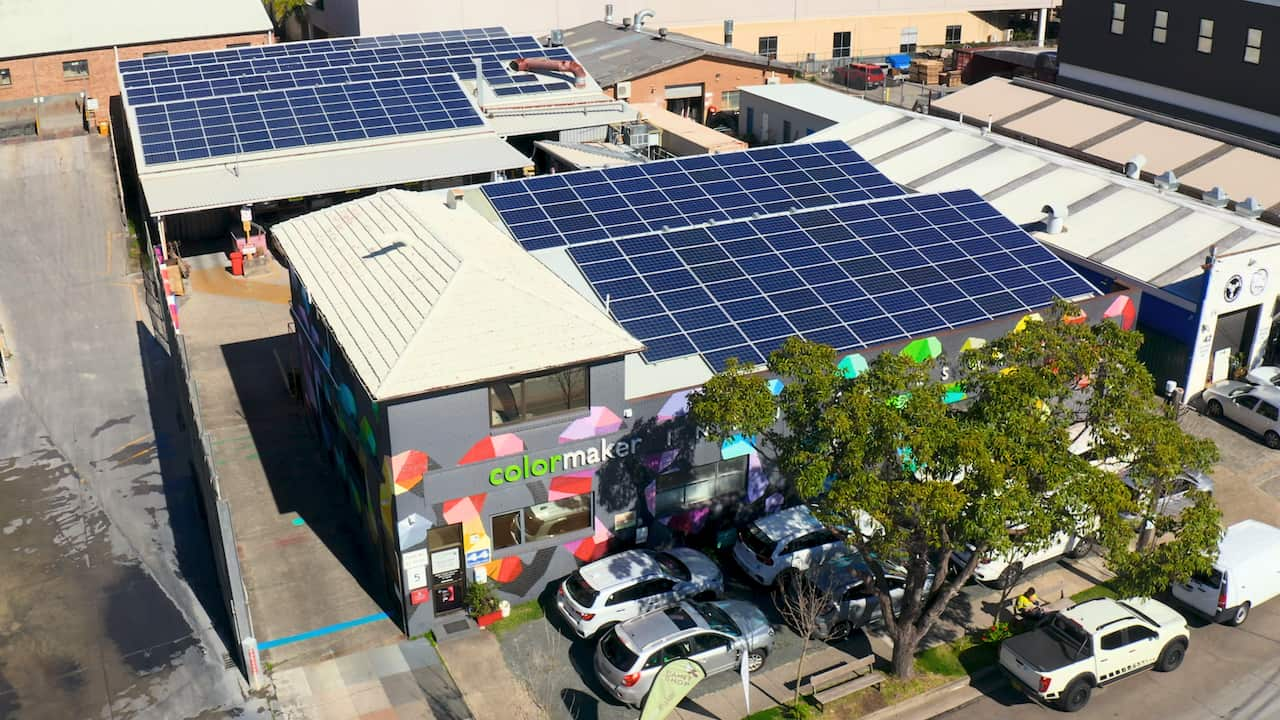
Colormaker Industries rooftop solar array. COSBOA says solar may not suit all businesses. Source: SBS / Spencer Austad
However, Addison agrees with ACCI that ongoing economic pressures are testing small business owners “like never before”.
“Almost three-quarters of those surveyed also expect costs to increase again over the next 12 months,” Addison said.
Turning a profit amid rising costs
“Our big battery is a game changer. It’s an Australian innovation at its finest, and I’m absolutely passionate about it,” he said.
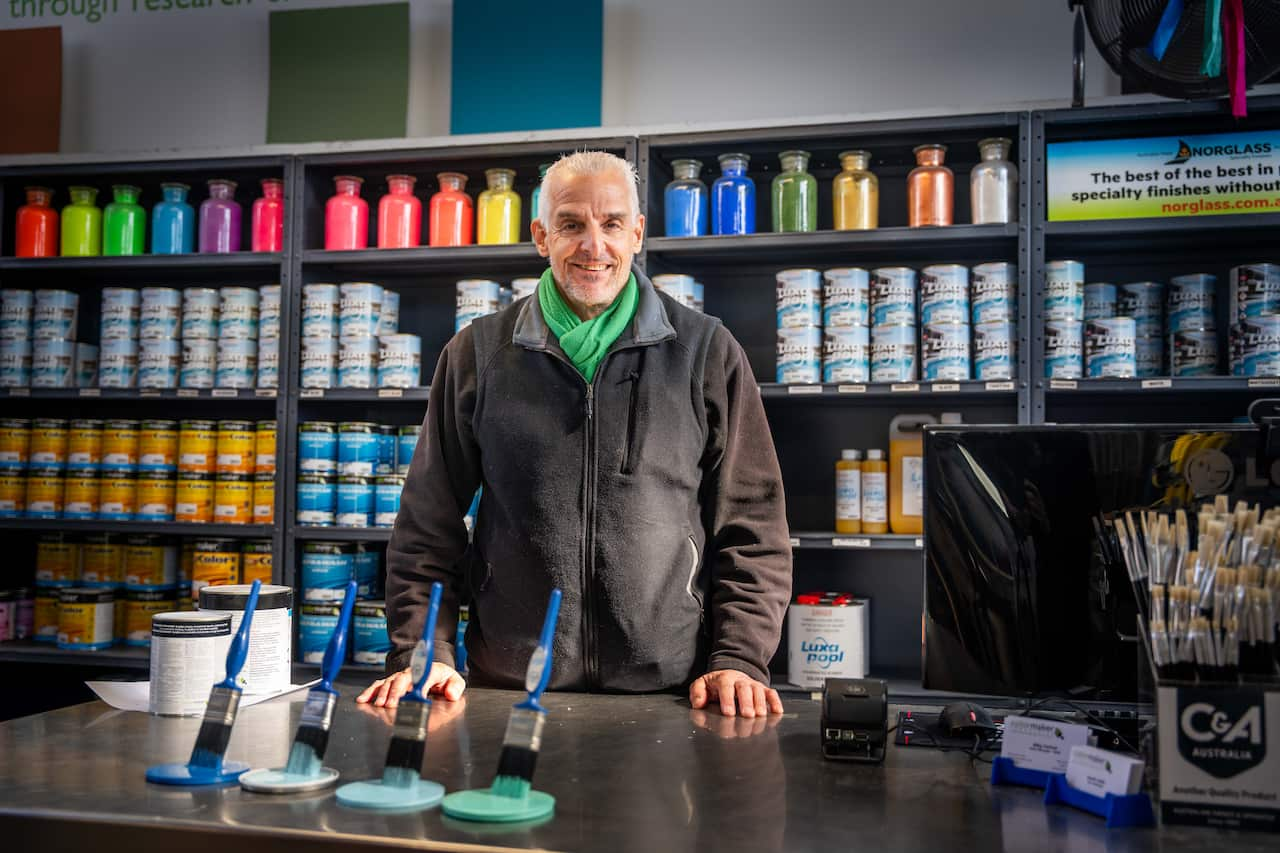
David Stuart said his paint business has improved both profits and sustainability by investing in battery storage. Source: SBS / Spencer Austad
Industry advocates report sales of big batteries are rising as upfront costs fall — by around 20 per cent last year alone.




